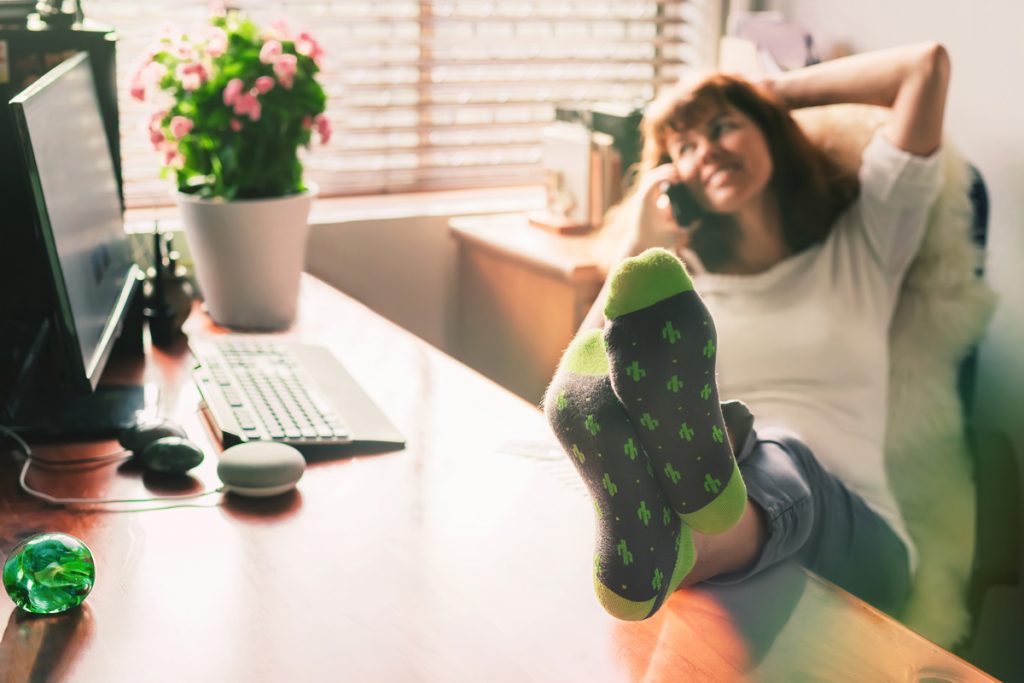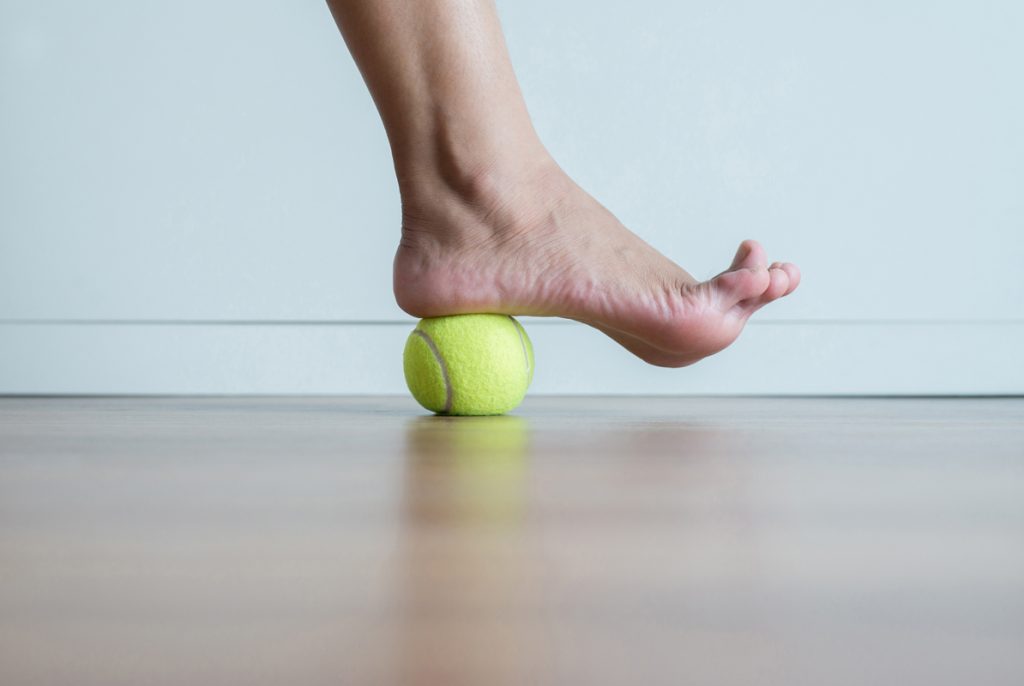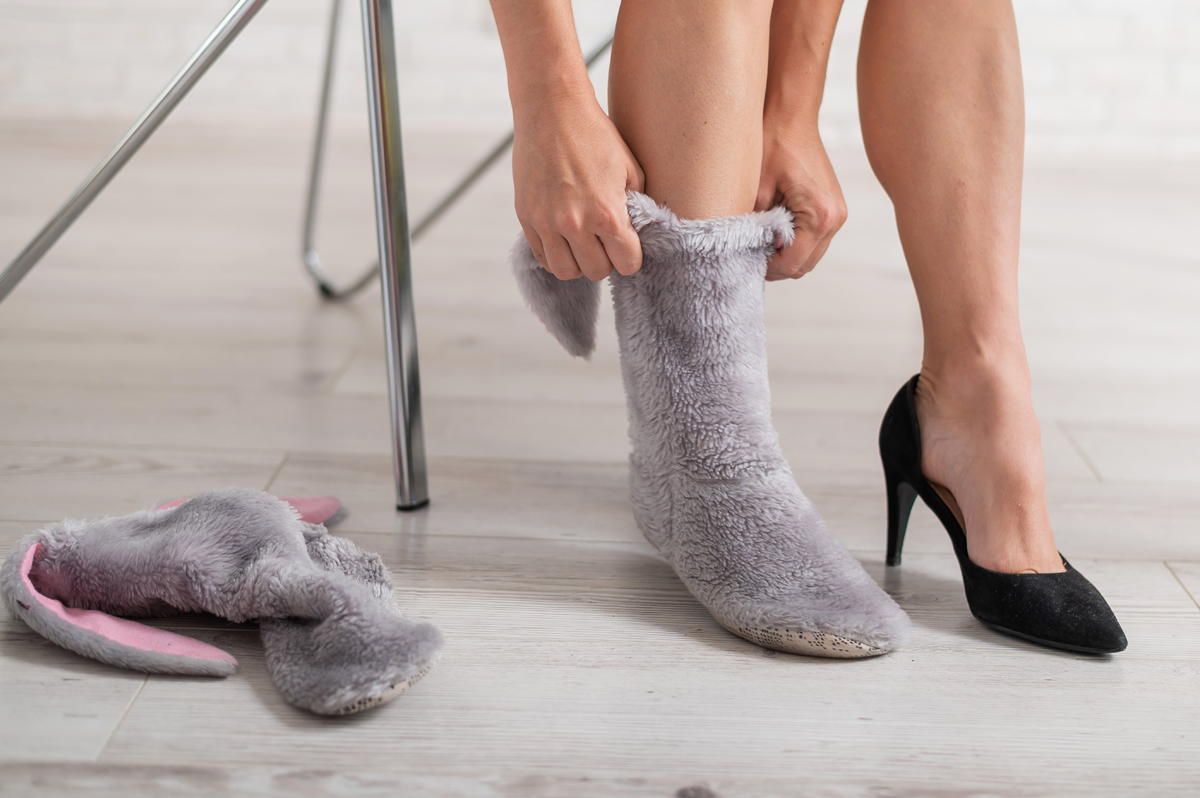We’re back in lockdown again New Zealand, and although it may seem like a hectic time getting work, kids, and household chores under control, make sure you make your own physical and mental health a priority.
Our neighbors across the ditch, have seen an uprise in heel pain due to “ugg foot injury”, as people have swapped their regular footwear for slippers and Ugg boots. We also saw it here in New Zealand last year when we were back in the clinic after lockdown. A common reason for heel pain, or what is often called plantar fasciitis, is people were spending time in the home either barefoot, or with only socks or slippers on the majority of the time. It may seem the more comfortable option but keep in mind the extra time you may be on your feet making homemade loaves of fresh bread or baking. And not to mention the extra time at the sink washing dishes, at least in my household bubble.

Plantar heel pain, or plantar fasciitis, is one foot condition that can develop due to inappropriate or unsupportive footwear. It generally has a gradual onset and is caused by repetitive microtrauma exacerbated by excessive or mechanical overloading of the plantar fascia band. Often there is a history of trauma but usually it has built up over time and has become aggravated, possibly due to activity or footwear changes. Plantar fasciitis is felt with the first few steps in the morning or after rest, and can feel like a sharp shooting pain. This pain may turn into a dull ache for the remainder of the day, especially if you have been active and on your feet.
With the beautiful weather we had during the 2020 lockdown, many people started new exercise and walking routines, and often with unsupportive footwear. If you are enjoying the time to get outside each day for a walk or run, be mindful of the shoes you choose to wear. As podiatrists, we generally recommend a sports shoe that has a small heel elevation, torsional stability (meaning you can’t twist the shoe or bend it in half), has a firm heel counter which will help hold your foot and ankle in place and absorb shock, and secure fastenings usually with laces. Similarly, if you normally wear orthotics in your shoes, lockdown is not a time to stop wearing them.

If you are experiencing heel pain, there are a few things you can do while at home during the lockdown. First, I’d recommend wearing supportive shoes (as described above) the majority of the time when you are weightbearing and on your feet. Keep this in mind for your first steps when you wake up in the morning and limit your time barefoot. Next, a few simple exercises can help alleviate the pain. This includes rolling out the arch of your foot on a tennis ball or something of similar shape (think rolling pin, wine bottle, etc – get creative!). If you have nothing to roll your foot on, cross your foot over the other knee, bend back the toes, and use your knuckles to massage the arch of the foot and the plantar fascia band. Doing either of these for 1–2 minutes a few times a day can make a big difference in your symptoms.
If you are still having trouble with your feet or heel pain, we are here to help. We are available for telehealth consults and can give you some more advice around foot and ankle exercises, footwear, and ways to manage your pain. Contact us to make an appointment.
Take care out there and stay safe New Zealand!
By Resonance Podiatrist Megan McPherson

